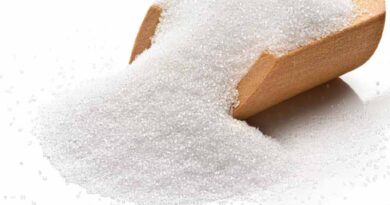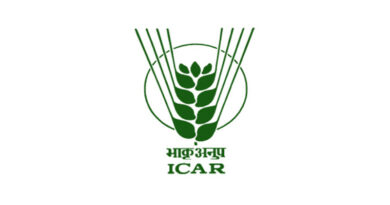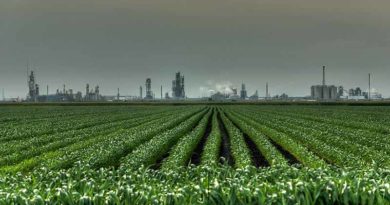How sugar sector has been transforming from food to fuel: Shree Renuka Sugars Deputy CEO explains
19 October 2022, New Delhi: Business Today caught up with Vijendra Singh, Executive Director and Deputy CEO, Shree Renuka Sugars and Managing Director of KBK Engineering to understand what has been working for the company and sugar sector. Edited excerpts:
Business Today: What are the major tailwinds for Shree Renuka Sugars and the sugar sector at present?
Singh: The sugar sector has been re-rated by investors in the recent past. Primarily, we are moving from the sugar industry to the energy industry, particularly “green energy”. This includes ethanol and power as both are green energy. Secondly, the sugar business has become very stable; we are moving from a cyclical industry to a stable industry. Earlier, sugar businesses were in stress, as we have been producing more than the consumption. If you see historical numbers, production was around 33 million tonnes and consumption was around 27-28 million tonnes. It means, there was always 5-6 million tonnes of surplus which has increased further during the past three to four years. Earlier, when ethanol was not there, we used to store excess sugar in the warehouse for more than a year which put an additional interest burden and also resulted in lower sales realisation. In the past we needed a subsidy from the government to export the surplus sugar, now the sugar stocks are balanced and export is being done without any subsidy from the government. Everything seems to be better and bright for the sugar and ethanol industry.
BT: How the government’s focus on ethanol has been transforming the industry?
Singh: The government has been very proactive and supportive of the ethanol blending programme. The Biofuels policy introduced by NITI Aayog has clearly given a road map for ethanol production and supply. The government has set right, the pricing and procurement process. Interest subvention schemes for the capacity expansion of ethanol have also supported expanding the ethanol capacity at a lower cost. The government also allowed direct conversion of cane juice to ethanol which has been the industry practice in Brazil, which is proving a game changer for ethanol production.
BT: How much sales and profit growth sugar industry can expect over the next 5 years?
Singh: The industry is now planning to convert the excess 7-8 million tonnes of sugar to ethanol which will make sugar production and consumption very well balanced, so no excess stock. I believe that good and professionally managed companies will have opportunities to perform better and grow in the future.
BT: How lucrative is the ethanol business for a sugar company? How will it support margins?
Singh: We require about 450 crore litres annually for 10 per cent blending in petrol. The consumption will double from here as we need to achieve 20 per cent blending by 2025, which is the target set by the government of India. Ethanol has various advantages, it can be dispatched quickly, so its lower inventory. Being a green fuel, its carbon emissions are very less, hence very safe for the environment. Ethanol Price is decided by the oil industry every year before the start of the season. Therefore, you know in advance how much price you will get for the full year. The margin on ethanol is better than sugar.
BT: What steps Shree Renuka Sugars has taken so far to increase ethanol supply?
Singh: We had foreseen ethanol potential very early and accordingly had invested Rs 300 crore on ethanol capacity expansion in the year 2020-21 and at present, we are expanding our distillation capacity by investing Rs 650 crore. Therefore, the total investment would be Rs 900-Rs 1,000 crores in ethanol capacity expansion in our distilleries
BT: How do you see the revenue composition in terms of sugar and ethanol business going ahead?
Singh: At present, if we consider our sugar milling business only, about 30 per cent of revenue comes from the ethanol business. The figure can easily go to 40 to 45 per cent by December 2022 when our expanded capacity will become operational. The full effect of this will be visible from next year onwards.
BT: As you have expertise in technology also, how it has been transforming the sugar industry?
Singh: The sugar and ethanol industry started using the technology to improve its yield, better logistics, processing, and cane farming. We have been running a structured program with the help of an NGO to transfer new techniques to farmers where they are educated to use mechanised harvesting and transport, drip irrigation, use of drone technology for the application of fertilisers and insecticides, better seed preparation, ratoon management, more accurate weather forecast, soil testing and production of biogas and bio fertilisers etc. We are the first to use Brazilian technology to produce juice ethanol.
BT: As you are MD of KBK Chem Engineering also, can you throw some light on the company’s business background and order book?
Singh: KBK is an EPC company and we supply distillery plants on a turnkey basis. We have already successfully executed more than 80 projects in India as well as abroad. At present, the KBK order book is more than Rs 600 crore. We are diversifying ourselves in energy, edible oil, chemical plants, sugarcane and sugar refinery equipment, and water treatment to name a few. I believe that KBK Chem has great potential to grow.
Also Read: 3 big announcements for agriculture sector and farmers made by PM Modi today
(For Latest Agriculture News & Updates, follow Krishak Jagat on Google News)















